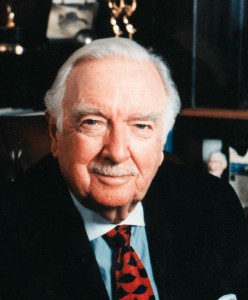This morning Al Jazeera English’s managing director, Tony Burman, held a breakfast meeting in London and invited journalists along to ask about latest developments at the channel.
Burman is in town for tonight’s Royal Television Society Awards (2007/8), for which the channel has been nominated for the ‘News Channel of the Year’ award – and it’s up against BBC and Sky.
Burman was, however, not overly optimistic and said that he thought it would be the BBC’s win. However, “next year will be the Gaza year and we will be here again,” he told the group. We’ll report back with an update tomorrow.
Burman’s message was clear: the channel is increasingly strengthening its reputation (that includes within the US, he said) and he emphasised that the fact it broadcasts to nearly 140 million households, after two years on air (it launched in November 2006) was a feat he considered very impressive. Getting Al Jazeera onto the satellite and cable networks in North America is a priority, he said.
The real topic of the morning was the crisis in Gaza: the two correspondents, Ayman Mohyeldin and Sherine Tadros, who had been on the ground prior, and during the 22 day conflict were also there to answer questions.
It was again confirmed that Al Jazeera English was the only English-language broadcaster to report from the Gaza strip before the press ban was lifted (see a previous interview with the channel’s head of new media, Mohamed Nanabnay).
So, here a few of the things that were discussed. Journalism.co.uk will be following up in more detail on these and other points raised, in due course.
Gaza:
Tony Burman said that ‘coverage was really very comprehensive’ and that the reaction to the channel’s output ‘was a reminder that there is a hunger in the world, to get a sense of what is going on’.
The Al Jazeera site had, at times, seen a 600 per cent increase in traffic during Gaza coverage, he said.
Because Israeli, as well as other international media couldn’t access the area either during parts of the conflict, Al Jazeera was watched by a bigger Israeli audience too, he said.
Sherine Tadros, who said it was just ‘chance’ that she ended up reporting from the ground (she is normally the Jerusalem correspondent) said that ‘everything was a risk’. ‘There was no green zone,’ she added. She ‘wasn’t meant to be there’ she joked.
Tadros was asked to go and do a feature from the region before the media clamp-down became apparent, and she hadn’t even packed clothes to take, thinking that her stay would be brief.
To be the only English channel on the ground could be a ‘one-off experience’ during her career, she said. While she thrived on being part of the only English-language media team on the ground – ‘everything we did was exclusive’ – Tadros was aware of the responsibility to cover as much as possible for an English speaking audience.
There was no way they could go away and ‘Google’ for additional information, for example, she said. All the information from the ground had to be gathered by themselves directly. While Tadros said she was already quite familiar with the region, she also had to adapt very quickly to the surroundings and context, she said.
Ayman Mohyeldin described how other international broadcasters were eager to use their material and how he did then feed back to US networks. One of the main differences between the Arabic and English coverage was the level of detail in the reports, he said.
Reports can’t assume context for an English-language audience, whereas an Arab audience has grown up very aware of 60 years of history, he said. As a result, English coverage must supply more detail and background. So while the English and Arabic channels worked closely via multimedia channels (there is a joint new media team) and shared information and sources in their newsrooms, the output can vary.
The style of English reporting is also different, Tadros added. Whereas an Arabic channel might do one hour of footage inside a hospital, that wouldn’t be something they would necessarily do on the English channel.
Expanding into Africa:
With a good presence in Nairobi, Zimbabwe and Johannesburg they’re keen to meet the needs of a ‘growing’ African audience, Burman said.
In regards to whether a full bureau would be opening in Nairobi (to add to bureaux in Washington, Doha, London and Kuala Lumpur), Burman was hesitant. In the current economic climate he ‘can’t talk about expansion,’ he said. For now, little is being said about big investments he explained, adding that Africa is a very important region for them and more correspondents would be added around the continent.
 America has lost a top celebrity anchorman, whose news delivery was so influential, he came to be called ‘the most trusted man in America’.
America has lost a top celebrity anchorman, whose news delivery was so influential, he came to be called ‘the most trusted man in America’.